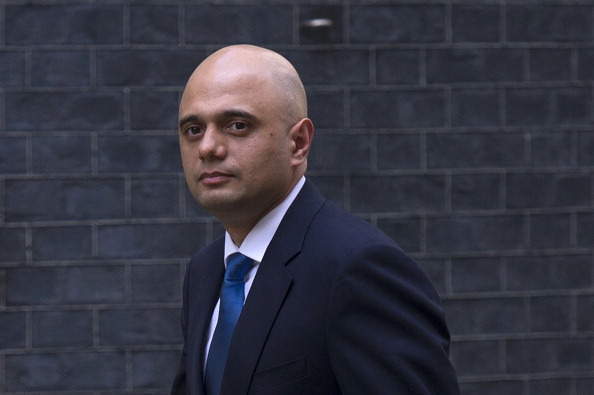
Sajid Javid’s ascension to the cabinet has been hailed by Conservatives as proof that “the British dream” really does exist. The son of a man who arrived at Heathrow airport from Pakistan in 1961 with a £1 note in his pocket, after his family lost everything during the partition, now sits at the top table of the UK government.
As the Culture Secretary (the first Asian cabinet minister) recounts in a new collection, The Party of Opportunity, by Conservative group Renewal: “My father made his way up north and found a job in a Rochdale cotton mill. Happy to be employed, he nevertheless strived for more. He set his sights on working on a bus, only to be turned away time and again. But he didn’t give up. He persisted and was hired as a bus conductor, then a driver, earning the nickname ‘Mr Night & Day from his co-workers. After that came his own market stall, selling ladies clothes (many sewn by my mother at home) and, eventually, his own shop in Bristol.
“My four brothers and I, all born in Rochdale, lived with my parents in the two-bedroom flat above our shop on Stapleton Road (which, although home to us, was later dubbed ‘Britain’s most dangerous street’). This – along with our family breaks to visit cousins back in Rochdale and our biannual treat of hiring a VHS player for a weekend to binge on movies – might not fit everyone’s definition of success, but success is always relative. My parents achieved their aims – to help their immediate and extended families and to provide for and educate my brothers and me.”
Javid’s story is an inspiring one (foolishly disregarded by those Labour MPs who attacked his successful career as an investment banker) but no Conservative paused to consider another issue: would the same be possible today? Under the current government’s draconian immigration cap, which limits the number of skilled migrants from outside the EU to just 20,700 a year, Javid’s father would have been barred. With no university degree and just £1 to live on, ministers would have rejected him as a potential “burden” on the welfare state, never knowing that he would go on to raise a son the equal of them.
This scenario is emblematic of the short-sightedness of the government’s immigration policy. For the sake of meeting an arbitrary target of reducing net migration to “tens of thousands” a year (which, owing to EU immigration, will not be met in any case), Britain is depriving itself of untold levels of talent. As my former colleagues Mehdi Hasan noted in a Guardian piece in 2011, “Had Avram Kohen not arrived on these shores from Poland in the late 19th century, his son Jack would not have been able to start Tesco in 1919. And had Mikhail Marks not been allowed to migrate to the UK from Belarus in the 1880s, he would never have met Thomas Spencer and created M&S.”
The truth that eludes the pessimistic and xenophobic right is that immigrants don’t just “take our jobs”, they create them too. But when today’s entrepreneurs seek to enter Cameron’s Britain, all they will be greeted with is a closed door.



